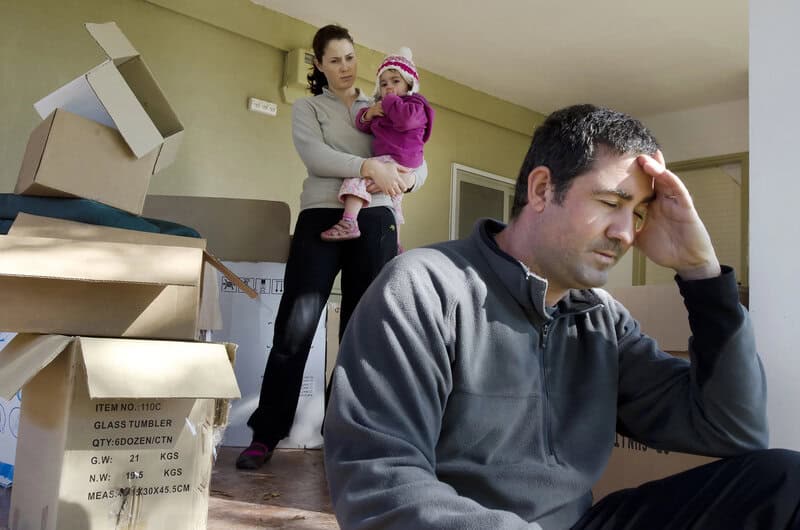Family law mediation is a special niche of family law, dedicated to helping couples navigate the complexities of separation or divorce for far less money and without the time and energy strain associated with traditional courtroom battles.
However, we’ve seen time and time again how family law mediation also supports couples who are interested in reconciling, and – sometimes – the mediation process is what brings couples back together.

Can Mediation Help to Save Your Marriage via Reconciliation?
All too often, a couple’s decision to get a divorce has far more to do with a marriage in crisis than it does with the actual inability to reconcile. That’s where divorce mediation can help clear muddy waters.
1. Early mediation processes can inspire reconciliation before separation
If there’s one piece of advice we could give any couples considering a separation or divorce, it would be to seek family law mediation ASAP. We’ll expand on why mediation can help support potential reconciliation – even after a divorce is filed or finalized, early mediation is your best bet for the least emotionally traumatic experience.
When couples come into a divorce mediation session on the early side of their process, we have the chance to explore some key questions:
- Is there any chance you could restore your marriage?
- How do you feel legal separation or divorce benefits you?
- What are the cons of divorcing for you, your spouse, and your children?
- Understanding that no marriage is perfect, if you thought you could resolve one or two key issues, do you feel you can salvage your marriage and nourish the future relationship?
- Are you willing to work with other professionals who may be able to help the crisis areas (financial advisor, family therapist (see below), substance abuse program, etc.)?
Spending some quality time, honestly and openly asking/answering questions like this with the support of a family law professional can shed new light on creative possibilities.
2. Divorce mediation provides a calm eye in the storm
Because divorce mediation lawyers are neutral parties, our office provides a calm eye in the storm, so to speak. Unlike a therapy office (more on that later), where issues are supposed to be aired, worked through, and resolved, divorce mediation helps couples become very clear about the “business” aspects of the divorce (division of assets, distribution of debts, navigating health insurance and other benefit distributions or needs, spousal and child support allocations, child custody and visitation agreements, etc.).
Of course, emotional engagement and expression are a natural part of that process. However, as Bay Area divorce mediators, we help to provide unbiased information about current California divorce and child custody laws, what a judge is likely to decide if a particular area of contention were brought to the courtroom, and creative options that support both parties’ interests – and the best interests of any children in the picture.
It’s not uncommon for couples who participate in divorce mediation sessions to find the space required to really sit with the future implications of their divorce on all aspects of their personal and extended family’s lives, which can result in a plan to reconcile.
3. Referrals to the Bay Area’s best MFTs
Not all therapists are created equal, and the process of trying to find a high-quality therapist while you’re in the pressure cooker of an eroding marriage can be overwhelming. It may take two, three, or even four “first sessions” before you find someone with whom you both feel safe, can trust, and whose methods are effective for both individuals and the couple as a unit. That’s a lot to ask, right?
Fortunately, after decades of providing professional divorce mediation, we have connections with some of the area’s best marriage and family therapists. We are happy to give referrals and always root for couples to work through their issues (if at all possible). The combination of legal mediation and a nurturing space to work through the core issues that are splitting the marriage apart may be what’s needed to find your way back together for a marriage that is stronger than ever.
4. Create calmer waters while you’re still living together
The Bay Area’s high cost of living means that most couples have to live together the entire time they’re getting divorced – or for a significant portion of the process. This can be absolutely excruciating for each of you and any children who live with you.
Without divorce mediation during this time, significant damage can be done in the relationship because there’s no middle ground to navigate the questions, worries, and financial concerns that arise when couples are thinking about separating or have already legally separated and are moving forward with divorce.
Once you’ve hired a family law mediator, you have a space to talk about any questions, concerns, requests, or decisions you’re making. That means you can set firm boundaries and take those conversations off the table when you’re at home. This can alleviate a significant amount of stress and provide more emotional space for clearer-headed decision-making.
5. Mediation focuses on the present and the way forward
Changing and growing are a natural part of the aging process, but they don’t always serve the stability of a marriage if people feel like they’re changing and growing apart – rather than together. So often, marriage therapy focuses on the past and relives hurts – and that has its place. However, with mediation, we look at where individuals are now, and from there, we work on neutral ground to find the best path forward. While separation may be necessary during the process, we can use mediation to explore how to avoid divorce.
When both parties are willing to be completely honest, vulnerable, and engaged in this process, the outcomes can be remarkable. The neutral space provided by divorce mediators honors emotions but doesn’t dwell in them. In this way, individuals often find a more objective space to step outside of themselves and see the other person’s perspective in a new light. From there, reconciliation is often possible.
6. Legal support can help you scaffold reconciliation after a divorce
Is your divorce already filed or finalized? It’s not uncommon for couples to reconsider whether they made the right decision after the divorce is filed or finalized. However, if things were heated enough – and seemed final enough – that you moved that far forward in the process, mediation is a good idea to support your reconciliation.
We can work through the financial, legal, and other decisions you made during the divorce and discuss the financial, legal, and emotional ramifications of reversing those. Mediation is an appropriate path for couples who want to create a new version of their marriage, and this may include making changes in areas such as budgeting and financial management. Family law mediation can help with that.
The Law Offices Of Gerard A. Falzone Provides Mediation For Reconciliation
As a Bay Area family lawyer, I specialized in divorce mediation long before it was made popular. I detested the unnecessary contention and financial drain that are the cornerstones of divorce litigation, and wanted to provide a calmer, more therapeutic, mature, and rational space for couples to explore what separation or divorce would mean for them – and to find the best and healthiest way forward.
So, it’s an absolute joy when I’m able to provide mediation sessions that help individuals find their way back into a stronger and healthier union. Are you considering reconciliation but want to avoid making the same mistakes? Schedule a mediation session with The Law Offices of Gerard A. Falzone.

 First and foremost, any relocation that takes a child away from their regular school district or outside of a reasonable distance/commute from a co-parent who has child custody or visitation rights is against the law. However, the situation can get sticky if there’s no child custody or visitation agreement in place.
First and foremost, any relocation that takes a child away from their regular school district or outside of a reasonable distance/commute from a co-parent who has child custody or visitation rights is against the law. However, the situation can get sticky if there’s no child custody or visitation agreement in place. 





 Your marriage is over. Now what? You know you don’t want a nasty in-court divorce procedure, but what is divorce mediation really like?
Your marriage is over. Now what? You know you don’t want a nasty in-court divorce procedure, but what is divorce mediation really like? If there is a divorce looming in your near future, you’re probably feeling a whole host of emotions. Sadness, fear, anxiety, and stress are just a few of the things on that list. And when the thought of all the necessary business of divorce hits you, you probably feel exhausted to boot.
If there is a divorce looming in your near future, you’re probably feeling a whole host of emotions. Sadness, fear, anxiety, and stress are just a few of the things on that list. And when the thought of all the necessary business of divorce hits you, you probably feel exhausted to boot.